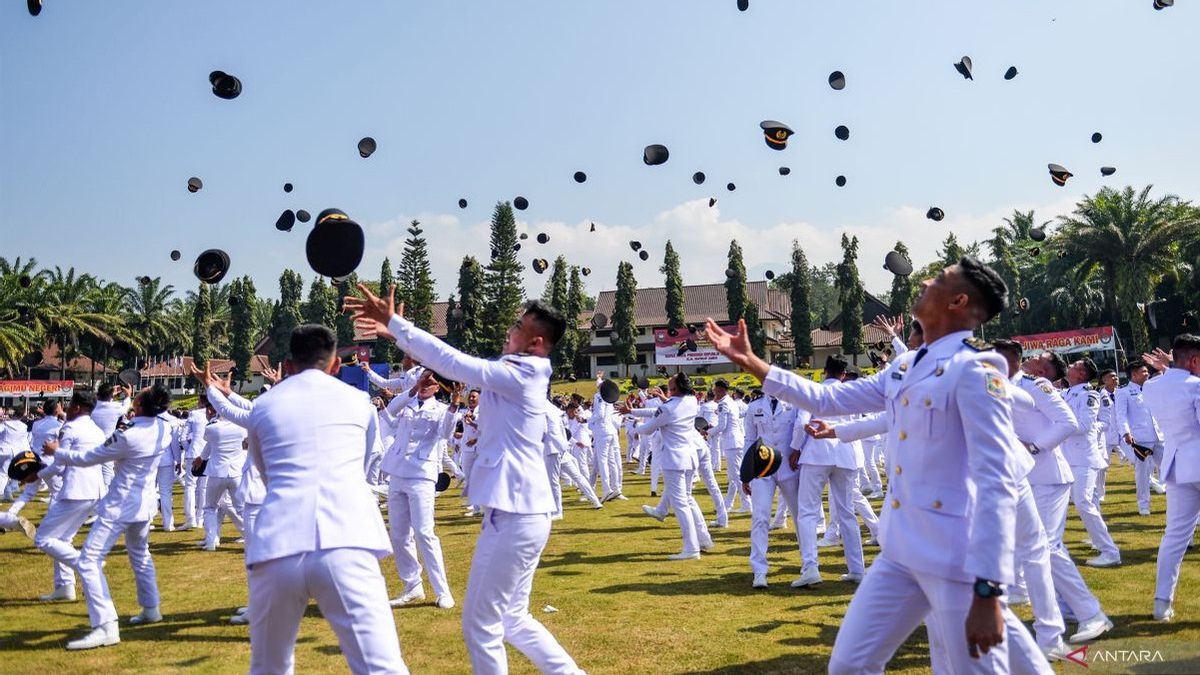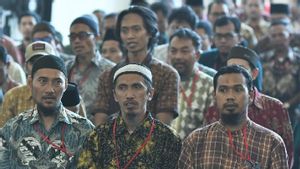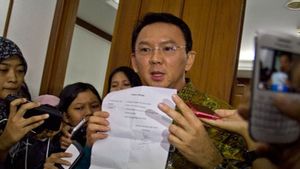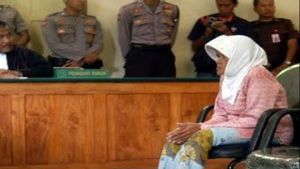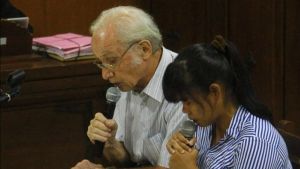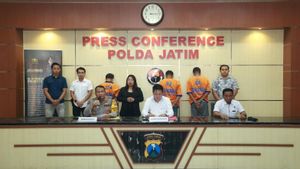JAKARTA - The Institute of Domestic Administration (IPDN) is favored as a producer of quality bureaucrats. Anyone who wants to enter will face a series of rigorous selections. Sometimes it also takes a fortune. However, that doesn't mean the education process will run smoothly.
IPDN is known as a seniority culture that led to bullying. The violence not only resulted in injury, but actually resulted in casualties. The impact was that many urged IPDN to be closed.
In the past, when the Dutch colonialists tried to make bold decisions. They began to involve the bumiputras to help carry out the government in the Dutch East Indies (now: Indonesia). The colonial government also presented an educational school for the prospective Bumiputra employee, OSVIA.
The natives of priyayi who are able to graduate from OSVIA will immediately be appointed as amtenars or civil servants during the colonial era. However, OSVIA did not really disappear when Indonesia was independent. The Indonesian government still presents schools with the same mission as OSVIA.
His name just changed. Recently, people have known him as a High School of Domestic Government (STPDN) in 1992. Later, STPDN with the Institute of Government Science (IIP) was merged in 2003.
Both then became IPDN. The government wants schools to produce one-door quality bureaucrats. Problems arise. The presence of STPDN to IPDN does not escape the problem. High seniority is the estuary.
This sense of seniority makes the culture of violence in the institution mushroom. The resulting culture of violence has taken many lives. Take, for example, from 1993-2007 alone, there were about 35 people who died, allegedly due to senior bullying to juniors.
However, the cases that emerged to the general public were only a dozen cases. The Minister of Home Affairs from the 2009-2013 era, Gamawan Fauzi, confirmed that IPDN was like a hotbed of violence. However, he did not want the violence to continue to drag on.
SEE ALSO:
He tried to reform IPDN by firing around 45 prejas who committed acts of violence from 2009 to 2013. The dismissal was carried out as a form of IPDN's commitment to reject on-campus violence.
"IPDN officials are educated not for war, but must protect themselves. Shifting the paradigm that has developed into a new paradigm."
"Once again I emphasize, there will be no reluctance for (students) who violate to be dealt with. We leave this matter behind, we will improve our mental attitude," said Gamawan Fauzi as quoted on the Ministry of Home Affairs website, August 28, 2013.
The seniority that caused death made many people criticize the pattern of education at IPDN. The Indonesian government was also sprayed. A series of IPDN reform wishes are considered to have no meaning.
The news of bullying continues to come. At its peak, not a few people began to demand that IPDN be disbanded. The loudest response came from the Governor of DKI Jakarta, Basuki Tjahaja Purnama (Ahok) in 2015.
Ahok considers IPDN graduates to be superior to other universities like mere nonsense. He feels that IPDN graduates are mediocre in his government. Their performance is not special. Some of the corrupt too.
This condition made Ahok advise the central government not to specialize in IPDN. If necessary, disband. The current supply of civil servants can emerge from anywhere. Ahok considered that desire reasonable. This is because the tradition of IPDN which often shows seniority leads to bullying.
He then asked President Jokowi directly to dissolve IPDN. Ahok felt that IPDN had suffered a lot of harm, rather than benefits. Ahok's proposal to dissolve IPDN was supported by many parties. Minister of Forestry Environment (LHK), Siti Nurbaya, supports Ahok's proposal.
However, not a few government officials rejected it. The refusal arose from the Coordinating Minister for Human Development and Culture, Puan Maharani. Ahok's proposal was deemed to have violated the law. Another rejection also came from the Vice President, Jusuf Kalla (JK). JK felt that IPDN did not need to be disbanded but its violence was eliminated.
Ahok's proposal was indeed considered harsh by some people. However, when there were cases of legislation at IPDN that surfaced, Ahok's proposal was considered to bring the truth. Even though the disbandment never happened.
"I want to ask, public services to the Indonesian people so far are all PTSP (One Stop Integrated Service), is that right? Who is the sub-district head first? Alumni (IPDN). Who fights, how many people die at IPDN? I want to ask. Now I ask, in Jakarta, is IPDN holding PTSP not now??
"No, but it's better. In the ASN Law there are 2, there are contract employees and there are civil servants. So, if you say that, why don't you say that your sustenance was taken? Are IPDN children definitely better than non-IPDN children? Not really. For example, examples of glorifying STPDN or IPDN of all kinds, I want to ask whether our republic is progressing today with dollars like that? So far, who do I want to ask? " explained Ahok as quoted on the coverage page 6.com, September 8, 2015.
The English, Chinese, Japanese, Arabic, and French versions are automatically generated by the AI. So there may still be inaccuracies in translating, please always see Indonesian as our main language. (system supported by DigitalSiber.id)
